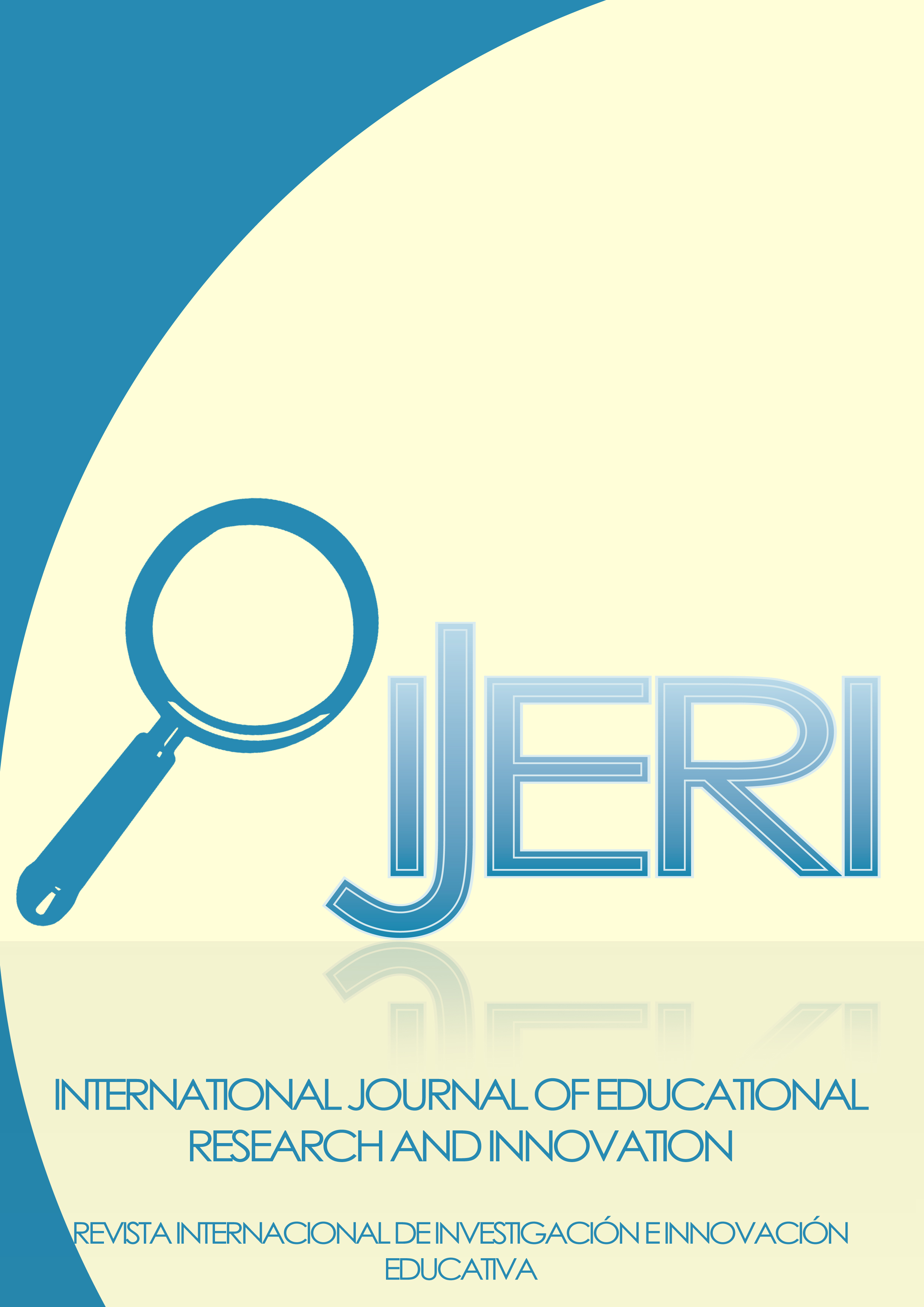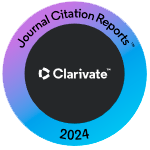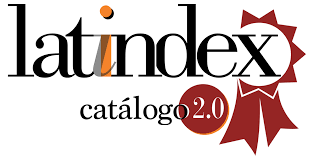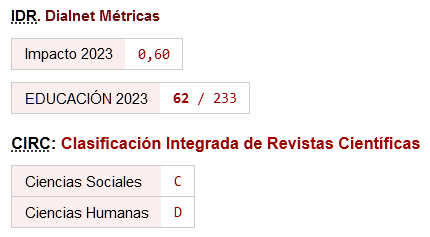Maddison Awards 2014-2018.
Development of student competences through film making.
DOI:
https://doi.org/10.46661/ijeri.5711Keywords:
Economic history, Pedagogical Innovation, audiovisual material, gender analysis, labor market, international migration, warsAbstract
The implementation of the European Higher Education Area (EHEA) required university courses to strengthen the development of students' competences. This paper presents the results of four editions of The Maddison Awards, a practical exercise to develop several competences: teamwork, audiovisual production, synthesis, and ICT use. Specifically, it consisted in writing, filmmaking and editing short films related to different topics studied in Economic History. In total, almost 2,000 students have participated, who working in groups, have made more than a hundred videos. The results have been highly positive, corroborating the usefulness of this exercise to bring the Economic History closer to students, stimulating creativity and the degree of involvement during the course. However, it also posed some difficulties.
Downloads
References
Álvarez-Rojo, V., Romero, S., Gil-Flores, J., Rodríguez-Santero, J., Clares, J., Asensio, I. y Salmeron-Vilchez, P. (2011). Teachers' needs for teaching in the European higher education area. Relieve, 17(1), 1-22.
Barrows, H.S. y Tamblyn, R.M. (1980). Problem-Based Learning: An Approach to Medical Education. New York: Springer.
Cabero Almenara, J. y Ruiz-Palmero, J. (2018). Las Tecnologías de la Información y Comunicación para la inclusión: reformulando la brecha digital. IJERI: International Journal of Educational Research and Innovation, 9, 16-30.
Ceballos-López, N., Calvo-Salvador, A. y Haya-Salmón, I. (2019). Student consultation strategies as a lever for school improvement. Results of a collaborative study. Culture and Education, 31 (4), 780-813.
https://doi.org/10.1080/11356405.2019.1656937
De Miguel, M. (2006). Métodos y modalidades de enseñanza superior. En M. De Miguel (coord.). Metodologías de enseñanza y aprendizaje para el desarrollo de competencias, pp. 17-26. Madrid: Alianza.
Fenollera, M. y Goicochea, I. (2011). Education Based on Competences: Project-Based Learning and Virtual Learning Plataform. En B. Katalinic (Ed.). DAAAM International Scientific Book, pp. 165-180. Vienna: DAAAM International Publishing.
https://doi.org/10.2507/daaam.scibook.2011.14
Fischer, C. (2015). Project-Based Learning. Research Starters Education. http://connection.ebscohost.com/c/essays/28544207/project- based- learning
Gibson, I. (2005). Designing Projects for Learning. En T. Barrett, I. Mac Labhrainn y H. Fallon (eds.). Handbook of Enquiry and Problem-based Learning, pp. 27-36. National Galway: University of Ireland.
González-Zamar, M.D., Abad-Segura, E. y Belmonte-Ureña, L.J. (2020). Meaningful learning in the development of digital skills. Trend analysis. IJERI: International Journal of Educational Research and Innovation, 14, 91-110.
https://doi.org/10.46661/ijeri.4741
Gross, B. (1999). Cooperative Learning: Students Working in Small Groups. Speaking of Teaching, 10(2), 1-4.
Gülbahar, Y. y Tinmaz, H. (2006). Implementing project-based learning and e- portfolio assessment in an undergraduate course. Journal of Research on Technology in Education, 38(3), 309-327.
https://doi.org/10.1080/15391523.2006.10782462
Huber, G. (2008). Aprendizaje activo y metodologías educativas, Revista de Educación, 59-81.
López-Meneses, E. y López-Velasco, M. (2007). Influencia de la tecnología de la información en el rol del profesorado y en los procesos de enseñanza aprendizaje. RIED. Revista Iberoamericana de Educación a Distancia, 10 (1), 51-60.
https://doi.org/10.5944/ried.1.10.1013
Martín-Sánchez, M. A. y López-Meneses, E. (2012). La sociedad de la información y la formación del profesorado. E-actividades y aprendizaje colaborativo. RIED. Revista Iberoamericana de Educación a Distancia, 15 (1), 15-35.
https://doi.org/10.5944/ried.1.15.775
Martínez-García, M., Ríos-Ariza, J. M., y Gómez-Barajas, E.R. (2017). Assertiveness research related to the domain, use of ICTs in students of the University of Guadalajara (México). IJERI: International Journal of Educational Research and Innovation, (9), 265-280.
Riesco, M. (2008). El enfoque por competencias en el EEES y sus implicaciones en la enseñanza y el aprendizaje. Tendencias Pedagógicas, 13, 79-105.
Rodríguez-Izquierdo, R. (2014). Modelo formativo en el Espacio Europeo de Educación Superior: valoraciones de los estudiantes. Aula Abierta, 42(2), 106-113.
https://doi.org/10.1016/j.aula.2014.03.002
Simkins, M., Cole, K. y Tavalin, F. (2002). Increasing student learning through multimedia projects. Alexandría: Association for Supervision and Curriculum Development.
Tumino, C. y Bourmissen, J. M. (2020). Integration of ICT in the classroom and its impact on students: construction and validation of measurement scales. IJERI: International Journal of Educational Research and Innovation, 13, 62-73.
https://doi.org/10.46661/ijeri.4586
Viles Diez, E., Zárraga-Rodríguez, M. y Jaca García, C. (2013) Herramienta para evaluar el funcionamiento de los equipos de trabajo en entornos docentes. Intangible Capital, 9(1), pp. 281304. DOI: http://dx.doi.org/10.3926/ic.3
Downloads
Published
How to Cite
Issue
Section
License
Copyright (c) 2022 Mauricio Matus-Lopez, Montserrat Cachero Vinuesa, Paula Rodríguez Modroño

This work is licensed under a Creative Commons Attribution-NonCommercial-NoDerivatives 4.0 International License.












